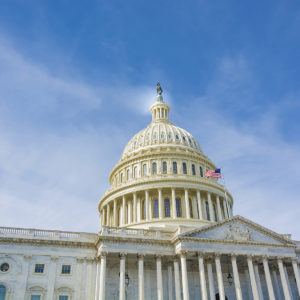Democrats in the House of Representatives volleyed their latest attack against the new Republican chairman of the Federal Communications Commission Monday after the agency cut several companies from a program to help poor Americans pay for internet service.
Freshman California Rep. Ro Khanna drafted a letter to the FCC signed by fellow Golden State Reps. Anna Eshoo, Ted Lieu, Zoe Lofgren, Yvette Clarke of New York and others who oversee and frequently weigh in on telecommunications issues.
The letter released Tuesday comes in response to FCC Chairman Ajit Pai’s move in early February to block nine companies from participating in the agency’s Lifeline program, which provides low-income households with a monthly subsidy to pay for telephone and broadband service.
“Your action will hurt those in our country that need the most help,” lawmakers wrote. “The founder of Kajeet, one of the companies you blocked, said he is concerned about the poor children they serve. He said, ‘We partner with school districts 41 states and the District of Columbia to provide educational broadband so that poor kids can do their homework.'”
Of the nine providers who had their Lifeline provider status revoked by Pai, Kajeet was the only one with Lifeline customers.
“Mr. Chairman, your arbitrary decision will hurt poor children and widen the digital divide,” they continued. “The American people deserve better.”
Pai announced their revoked status in a late Friday statement that was slammed by Democratic lawmakers and the lone Democrat left at the FCC, Commissioner Mignon Clyburn.
In his statement, the chairman said the applications were approved by his predecessor, Democrat Tom Wheeler, in a round of “midnight regulations” just days from the end of the Obama administration.
He added they were opposed by Republican commissioners and violated agency rules the require applications to undergo 30 days of public comment. Others were filed without the consent of tribal representatives, a requirement for providing Lifeline service on tribal lands. In those cases, Pai said, their designations were reversed at the request of tribal representatives.
“Every dollar that is spent on subsidizing somebody who doesn’t need the help by definition does not go to someone who does,” Pai said in a later defense of the move. “That means that the commission needs to make sure that there are strong safeguards against waste, fraud, and abuse before expanding the program to new providers.”
The applications of those nine companies remain pending at the agency for further vetting. Those make up 1 percent of the 900 companies participating in Lifeline.
“Hyperbolic headlines always attract more attention than mundane truths,” Pai said. “For example, a story detailing how the FCC was undertaking further review of the eligibility of 1 percent of Lifeline providers wouldn’t generate too many clicks.”
Pai’s office led an independent investigation into Lifeline fraud last year, which uncovered a number of potentially fraudulent practices by providers including enrolling the same households multiple times and bypassing a system meant to verify eligibility. The FCC’s Enforcement Bureau brought it’s steepest fine ever against a Lifeline provider the same year, along with another investigated by Pai.
Democrats accused the chairman of undermining his self-described priority as chairman, “closing the digital divide” by improving broadband deployment to rural and underserved areas of the country.
“By reversing the decision made by your predecessor, you are reducing, not expanding, internet access,” Democrats wrote. “We ask that you reconsider the commission’s decision to remove the nine companies.”

